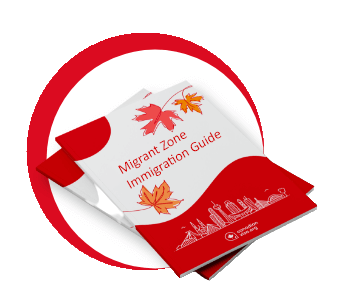
The Canadian health care system has been a resounding success since its introduction in the country in 1967. The publicly funded health care system provides health services that are mostly free to Canadian citizens and managed and administered on a provincial and territorial level guided under the Canadian Health Act. While the government aims to ensure the quality of service through federal standards, with very few exceptions, all citizens qualify for health care services regardless of medical history, income and standard of living. However, the public funded healthcare system does not cover prescription drugs, home care or long-term care, prescription glasses or dental care, therefore Canadian citizens pay for these services either out of their pockets or through private medical insurance and employer-sponsored plans.
Benefits
1. Available to everyone
The health care system which is also called Medicare in Canada is offered to all citizens and is not determined by the finances of individuals.
2. Health Education Programs
The Canadian government through the provincial and territorial governments runs health educational programs regularly. These education programs seek to make citizens more aware, so they can avoid injuries and offer a more proactive approach to general health issues so that ailments are detected earlier thereby reducing their impact. These programs are fully funded by the Canadian government and go a long way in educating citizens of all ages and backgrounds. Without the universal health care system, these programs may not have been funded or may have been considered irrelevant.
3. Care for special needs
The Canadian Medicare takes into consideration the needs of children, disabled citizens and the elderly. For senior citizens or veterans and disabled children, there is a need for special care and attention, and the health care system was designed with this in mind.
Canadian health insurance is a national health program called Canada Medicare (public health insurance). Canadian citizens and legal, long-term residents receive medical services through Medicare. Medicare is paid for through taxes, and there is no cost when you use medical care.
This basic medical insurance provided by the government is governed by the provincial governments; the provinces have different regulations. The system is governed and developed by Medicare in each Province of Canada and each province has control over the rules in their area.
Medicare National Health Insurance does not pay for prescription drugs (drugs provided during a hospitalization are paid for), general dental care, optometry, ambulance and other medical expenses. Canadians usually buy supplemental health insurance to help pay for these additional health care services. It is recommended when traveling to Canada to purchase good protection for prescription drugs (outpatient and inpatient) and ambulance.
Who is covered?
The Canadian provinces and territories administer their own universal health insurance programs covering all provincial and territorial residents. The federal government supports the public programs through fiscal transfers conditional on their meeting the five criteria of the Canada Health Act, including universal coverage for medically necessary hospital, diagnostic, and physician services (Medicare). Each province and territory is responsible for establishing its own specific residency requirements; undocumented immigrants, including denied refugee claimants, those who stay in Canada beyond the duration of a legal permit, and those who enter the country "illegally," are not covered in any federal or provincial program, although the provinces/territories do provide some limited services. Coverage of other health services is generally provided through a mix of public programs and private health insurance, or financed by out-of-pocket payments.
The federal government provides additional health care benefits (and compensates provincial/territorial governments) for physician and hospital services provided to First Nations and Inuit, members of the Royal Canadian Mounted Police and the Canadian Forces, veterans, refugee claimants, and inmates in federal penitentiaries. Around two-thirds of Canadians also have private health insurance, which covers services that are not covered under the public programs.
Private Health Insurance

The medical care offered by your province or territory might not be covered in other provinces and territories. For this reason, you may require private health insurance if you plan to travel.
Private health insurance is also available for services that may not be covered under your province or territory’s health insurance plan. These services generally include prescription drugs, dental costs, private hospital rooms, ambulance services, and prescription glasses. Some provinces’ plans also exclude arguably “marginal” operations such as IVF treatment.
Four self-employed workers, one contract worker with no benefits and one recently retired friend want extra health care coverage beyond basic government-funded medicare. Canadians tend to focus on the publicly funded side of the health system, although 60 percent of them have extended coverage, usually through employers or unions. But with baby boomers retiring — and the rise of contracting out — more will be paying out of pocket for those extras in the future.
What’s already covered?
Everyone in Canada receives medically required doctor’s visits, diagnostic tests and hospital care, largely through the taxes we pay. For example, B.C. and Alberta are the only provinces that charge monthly premiums to residents. In B.C., it costs $69.25 per month for anyone taking home more than $30,000 per year. That premium is usually covered by employers.
What’s not covered?
Prescription drugs, dentists, eye exams, hearing aids, private hospital rooms, psychologists, counsellors, physiotherapists, cosmetic surgery and tests required for immigration papers, driver’s licences and insurance.
The Insurers
There are three types of insurers: for-profit, not-for-profit and co-operatives:
For-profit:These include the former mutual insurers who started selling shares on the stock market after a change in federal law in 1999. Great-West Life is one of the industry’s heavy hitters and it offers individual and family plans for extended health, which is the industry norm.
Not-for-profit: In B.C., Pacific Blue Cross dominates this sector, as do Green Shield Canada and Desjardins, respectively, in Ontario and Quebec. These companies put their profits back into the business rather than paying them out to shareholders. There are policies for families, but not unrelated individuals.
Co-operatives: This is where you’ll need some time and have to love going to meetings. Any group of three can start a health co-operative and set their own goals, whether it’s pooling their resources to buy cheaper out-of-country coverage for travelling retirees or seeking alternative treatments like acupuncture or reflexology. Six people would be a rather small co-op, however, and this group would have to find some more members to make a go of it.




